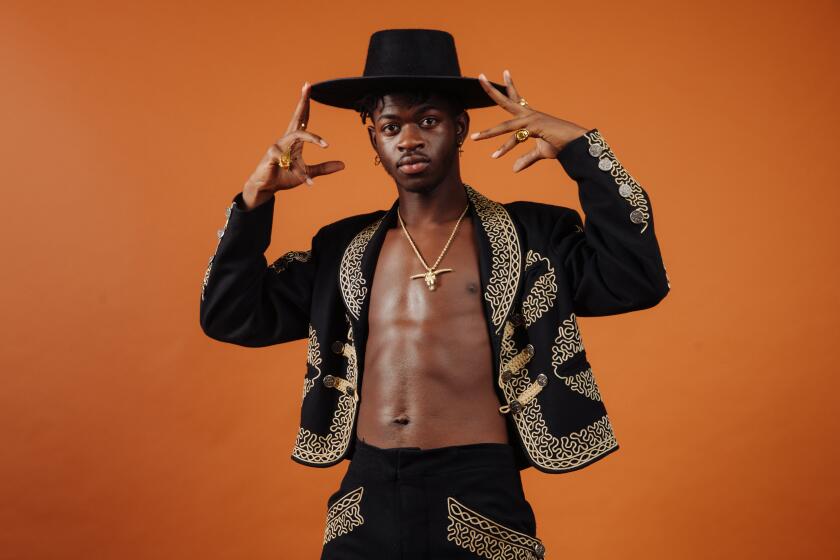Lollapalooza’s Newest Format: Nonexistence
- Share via
Who’s to blame for the cancellation of Lollapalooza ‘98?
Ted Gardner, one of the tour’s founding partners, has commented that plans fell apart in February with word that fellow partner Perry Farrell’s re-formed Jane’s Addiction, expected to headline this year as it had the original Lollapalooza in 1991, would not be available. By then, Gardner has said, it was too late to secure a suitable replacement, and indeed Nine Inch Nails, Marilyn Manson, Korn and Garbage all turned down offers due to other recording or touring plans.
Farrell, though, disputes the time line. His spokeswoman, Heidi Robinson, says that Farrell informed the William Morris Agency, which co-owns and books the tour, in early January that Jane’s would not be available. That, Farrell believes, allowed plenty of time to make alternate plans. Peter Grosslight, the William Morris senior vice president heading the firm’s music division, was out of the country and unavailable for comment, and Gardner did not return repeated calls from Pop Eye.
But Farrell, Robinson says, is “really sad that it’s not going to happen, but he completely agrees that if it’s not going to be the best it can be, it’s best not to have it this year.”
What about next year, though? Can the tour rebound for ‘99? Or has Lollapalooza’s time passed? Is it time to eulogize the seminal, much-imitated alternative-rock festival and move on to other things?
Don’t nail that coffin too fast, insists the other co-founders, former William Morris agents Marc Geiger and Don Muller.
“We feel if they can attract great talent like they had in the past, we can definitely bounce back,” says Geiger, speaking with Muller from the offices of ArtistDirect, the talent agency they started after leaving William Morris and Lollapalooza at the end of 1996. “Lollapalooza is like any festival, but the media painted it as a reflection of its times, when in fact it was a reflection of all these great artists who weren’t being recognized by the mainstream. There are good years and bad years for every festival.”
Lisa Worden, music director of KROQ-FM (106.7), sees the year off as a valuable--and perhaps needed--chance for Lollapalooza organizers to reinvent the event in order to separate it from the other festivals that have developed in its wake.
“With all the others out there it doesn’t stand on its own as it used to,” she says. “They should try to make something new out of it.”
And Paul Tollette, who as co-owner of L.A. concert promotions firm Goldenvoice works closely with the Lollapalooza team, agrees that this is a chance to reinvigorate the tour’s formula.
“In England a lot of the festivals take a year off and come back stronger,” he says. “I’m sure if they bring Lollapalooza back they can spruce it up for 1999. Myself, I feel that each city should have an [edition of Lollapalooza] that’s designed for it. It’s a struggle, but Lilith Fair spiced up its shows for each city by having different lineups.”
But Geiger isn’t convinced a new format is necessary.
“It’s not about formats,” Geiger says. “If you have just average artists, a new format won’t help that. This year, if Jane’s Addiction had agreed to do it, every artist out there would have wanted to do it with them and it would have been huge. It’s about great artists and it always was, though it’s also partly about who’s available.”
More to Read
The biggest entertainment stories
Get our big stories about Hollywood, film, television, music, arts, culture and more right in your inbox as soon as they publish.
You may occasionally receive promotional content from the Los Angeles Times.










